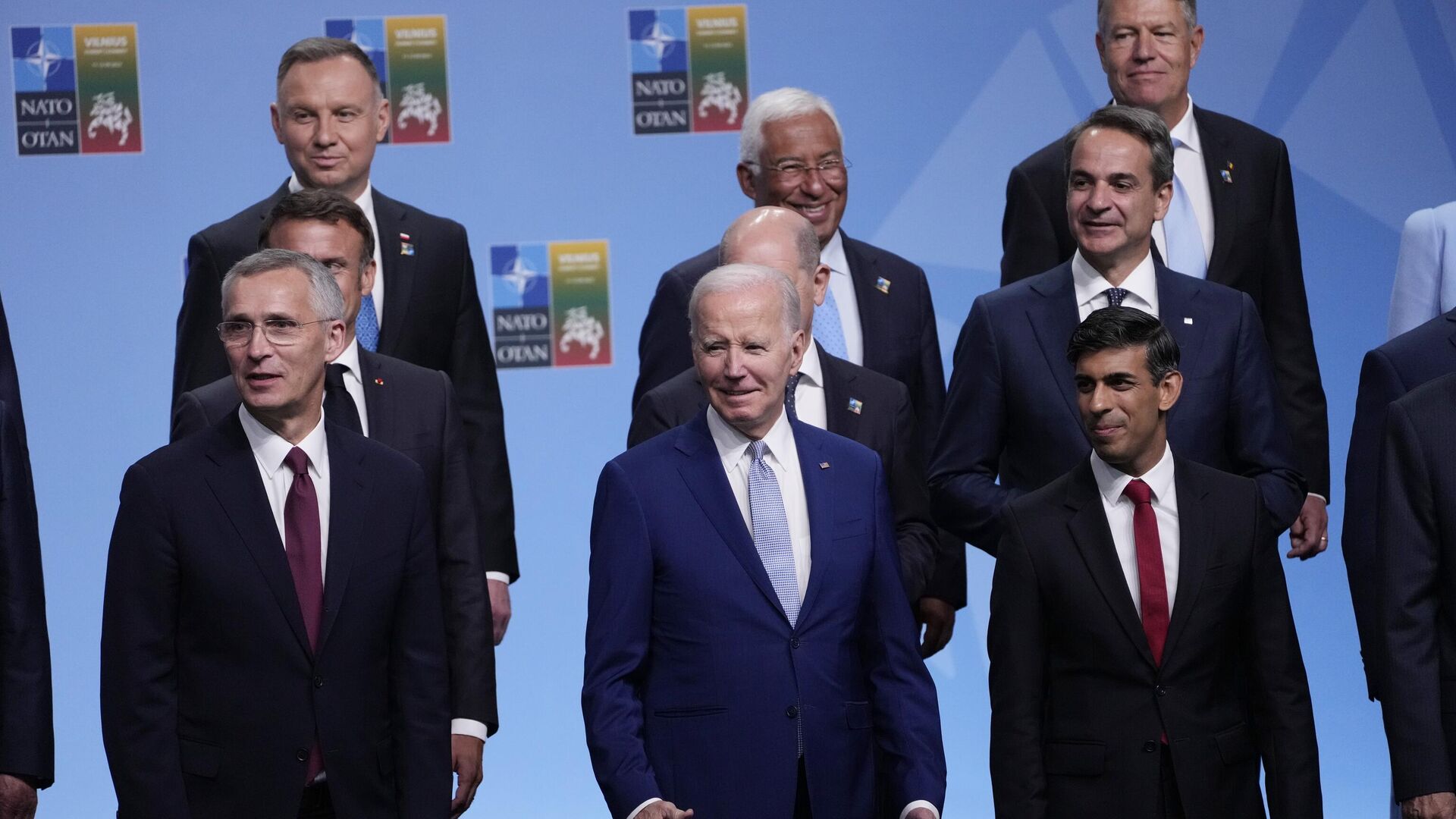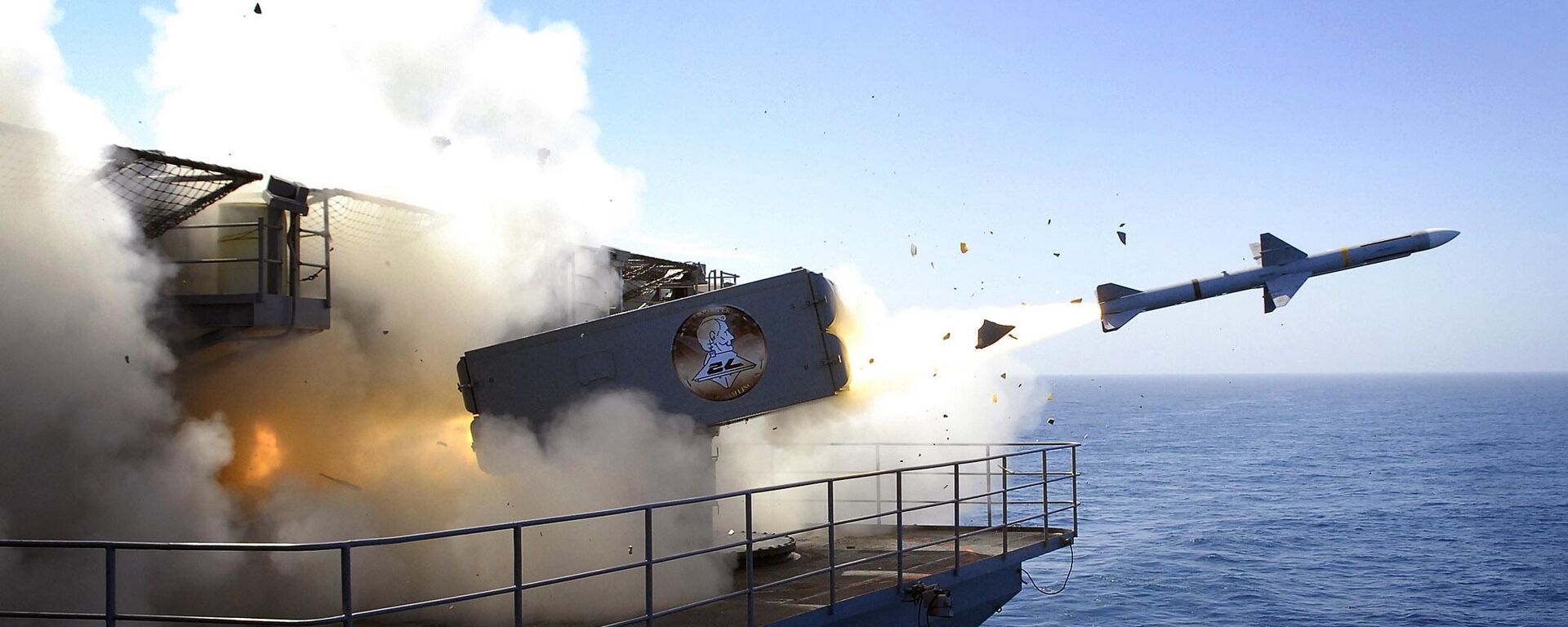https://sputniknews.in/20230712/india-must-stay-away-from-asian-nato-despite-ladakh-standoff-ex-pm-advisor-2961827.html
India Must Stay Away from ‘Asian NATO’ Despite Ladakh Standoff: Ex-PM Advisor
India Must Stay Away from ‘Asian NATO’ Despite Ladakh Standoff: Ex-PM Advisor
Sputnik India
A former Indian prime ministerial advisor has told Sputnik that New Delhi must distance itself from the “dangerous mischief” of the North Atlantic Treaty Organization (NATO).
2023-07-12T16:19+0530
2023-07-12T16:19+0530
2023-07-12T16:19+0530
sputnik opinion
india
nato
nato+
jens stoltenberg
japan
china
s. jaishankar
us
australia
https://cdn1.img.sputniknews.in/img/07e7/07/0c/2965423_0:0:3072:1728_1920x0_80_0_0_7e7ec3a7c78fe2aa7fe11ed36ccaf079.jpg
A former Indian prime ministerial advisor Sudheendra Kulkarni has told Sputnik that New Delhi must distance itself from the “dangerous mischief” of the North Atlantic Treaty Organization (NATO) as the trans-Atlantic grouping seeks to expand its security footprint to the Indo-Pacific.Kulkarni cautioned that NATO’s design was to create a “twin” in the form of an ‘Asian NATO’ in the Indo-Pacific.The remarks come as the NATO joint statement justified the grouping’s hawkish stance towards China, claiming that developments in the Indo-Pacific “directly affect Euro-Atlantic security”.NATO Secretary-General Jens Stoltenberg and the leaders of Australia, Japan, New Zealand and South Korea have unveiled plans to deepen cooperation in areas such as maritime security, cyber and new technologies as well in countering hybrid threats at the leaders’ meeting in Vilnius.Stoltenberg said during a meeting with Japanese Prime Minister Fumio Kishida that the “new partnership programme” with Tokyo would enhance cooperation in arms control, space, supply chains and resilience.Similarly, Stoltenberg and South Korean President Yoon Suk Yeol have vowed to bolster cooperation by formalizing the ‘Tailored Partnership Programme’.NATO Shouldn't Be Engaged in India's Bilateral Issues with ChinaKulkarni called upon the Indian authorities to “completely stay away from NATO’ despite its ongoing border dispute with China in the eastern Ladakh region.New Delhi and Beijing have been involved in a border standoff since 2020, with thousands of troops from both sides massed in at least two friction points in the eastern Ladakh region.Eighteen rounds of military commander-level talks, official consultations as well as several meetings between the foreign ministers have resulted in disengagement of troops and de-escalation of the situation at several border points.New Delhi has maintained that the state of India-China border would determine the state of bilateral ties between the two nations.Indian Foreign Minister S Jaishankar said last month that relations between the two Asian neighbours continued to remain “abnormal”, despite Beijing consistently ranking among India’s two biggest trading partners.Despite its border dispute, New Delhi has rejected American mediation in resolving the standoff and maintained that the matter would be resolved through bilateral means.New Delhi has also rejected a proposal by members of US Congress to enlist it as a member of ‘NATO Plus’, saying that the ‘NATO template doesn’t apply to India’.
https://sputniknews.in/20230711/india-opposes-natos-warmongering-in-asia-iaf-veteran-2940835.html
https://sputniknews.in/20230505/sino-india-border-situation-generally-stable-chinese-fm-tells-jaishankar-1825734.html
india
japan
china
us
australia
south korea
indo-pacific
ladakh
Sputnik India
feedback.hindi@sputniknews.com
+74956456601
MIA „Rossiya Segodnya“
2023
Dhairya Maheshwari
https://cdn1.img.sputniknews.in/img/07e6/0c/13/138962_0:0:641:640_100x100_80_0_0_2cb44360dbcdf6d84bf4b299cd045917.jpg
Dhairya Maheshwari
https://cdn1.img.sputniknews.in/img/07e6/0c/13/138962_0:0:641:640_100x100_80_0_0_2cb44360dbcdf6d84bf4b299cd045917.jpg
News
en_IN
Sputnik India
feedback.hindi@sputniknews.com
+74956456601
MIA „Rossiya Segodnya“
Sputnik India
feedback.hindi@sputniknews.com
+74956456601
MIA „Rossiya Segodnya“
Dhairya Maheshwari
https://cdn1.img.sputniknews.in/img/07e6/0c/13/138962_0:0:641:640_100x100_80_0_0_2cb44360dbcdf6d84bf4b299cd045917.jpg
india china corp commander meeting, india china news, india china border, india china relations, india china jaishankar, nato news, nato china, nato members, nato summit, china taiwan news, china news, us china trade war, us china tensions, us china news, us china relations
india china corp commander meeting, india china news, india china border, india china relations, india china jaishankar, nato news, nato china, nato members, nato summit, china taiwan news, china news, us china trade war, us china tensions, us china news, us china relations
India Must Stay Away from ‘Asian NATO’ Despite Ladakh Standoff: Ex-PM Advisor
The NATO Joint Communique at the Lithuania leaders' summit on 11-12 July has described China as a “challenge” to the grouping’s security and interests, provoking backlash from Beijing.
A former Indian prime ministerial advisor
Sudheendra Kulkarni has told Sputnik that
New Delhi must distance itself from the “dangerous mischief” of the
North Atlantic Treaty Organization (NATO) as the trans-Atlantic grouping seeks to
expand its security footprint to the
Indo-Pacific.
“Many western powers, especially the United States, accuse China of expansionism. Actually, it is the US-led NATO that is proving itself to be expansionist,” said Kulkarni, an advisor to former Indian Prime Minister Atal Bihari Vajpayee.
Kulkarni cautioned that NATO’s design was to create a “twin” in the form of an ‘Asian NATO’ in the Indo-Pacific.
“That is why, the ongoing NATO Summit in Lithuania has invited four Asia-Pacific nations, Australia, New Zealand, South Korea and Japan as guest members,” he stated.
The remarks come as the NATO
joint statement justified the grouping’s hawkish stance towards China, claiming that developments in the Indo-Pacific “directly affect Euro-Atlantic security”.
NATO Secretary-General Jens Stoltenberg and the leaders of Australia, Japan, New Zealand and South Korea have unveiled plans to deepen cooperation in areas such as maritime security, cyber and new technologies as well in countering hybrid threats at the leaders’ meeting in Vilnius.
Stoltenberg said during a meeting with Japanese Prime Minister Fumio Kishida that the “new partnership programme” with Tokyo would enhance cooperation in arms control, space, supply chains and resilience.
“The Secretary General also expressed concern about China's military build-up, including the modernisation and expansion of its nuclear forces,” a NATO statement read.
Similarly, Stoltenberg and South Korean President Yoon Suk Yeol have vowed to bolster cooperation by formalizing the ‘Tailored Partnership Programme’.
NATO Shouldn't Be Engaged in India's Bilateral Issues with China
Kulkarni called upon the Indian authorities to “completely
stay away from NATO’ despite its ongoing border dispute with China in the eastern Ladakh region.
“Yes, India has bilateral problems with China. But these should be resolved bilaterally,” Kulkarni remarked.
New Delhi and Beijing have been involved in a border standoff since 2020, with thousands of troops from both sides massed in at least two friction points in the eastern Ladakh region.
Eighteen rounds of military
commander-level talks, official consultations as well as several meetings between the foreign ministers have resulted in disengagement of troops and
de-escalation of the situation at several border points.
New Delhi has maintained that the state of India-China border would determine the state of bilateral ties between the two nations.
Indian Foreign Minister S Jaishankar said last month that relations between the
two Asian neighbours continued to remain “abnormal”, despite Beijing consistently ranking among India’s two biggest trading partners.
Despite its border dispute, New Delhi has rejected American mediation in resolving the standoff and maintained that the matter would be resolved through bilateral means.
New Delhi has also rejected a proposal by members of US Congress to enlist it as a
member of ‘NATO Plus’, saying that the ‘NATO template doesn’t apply to India’.




